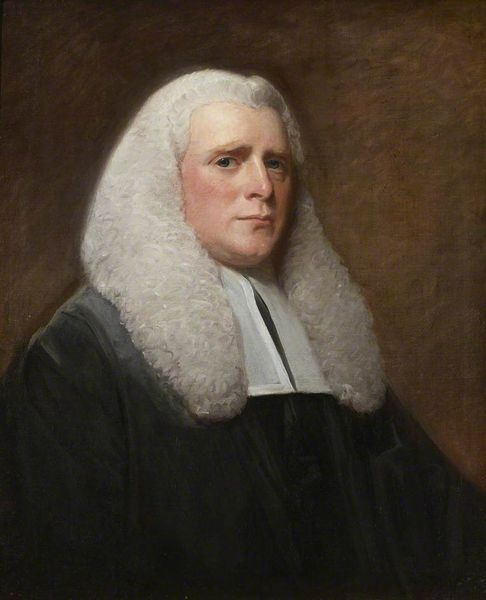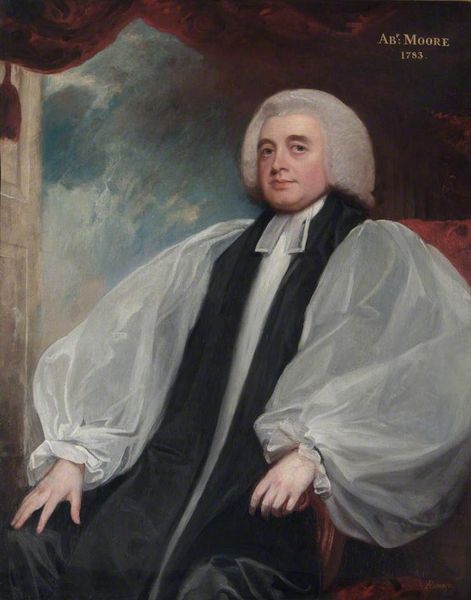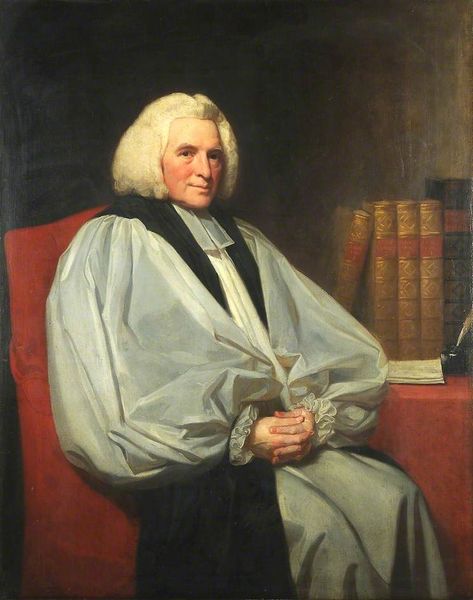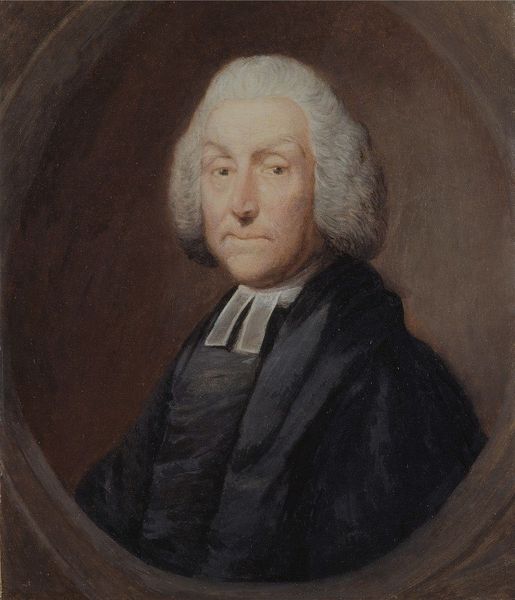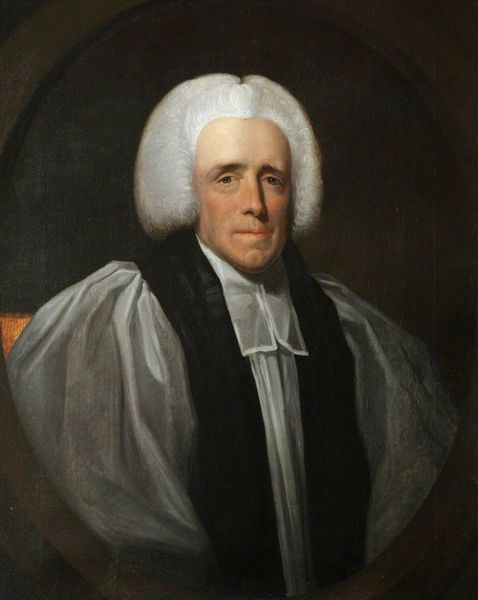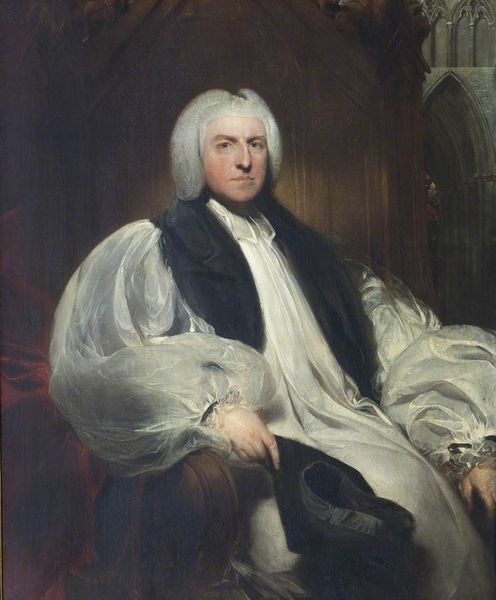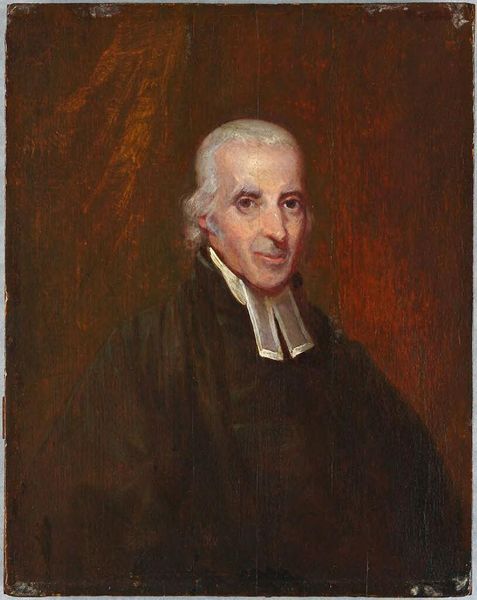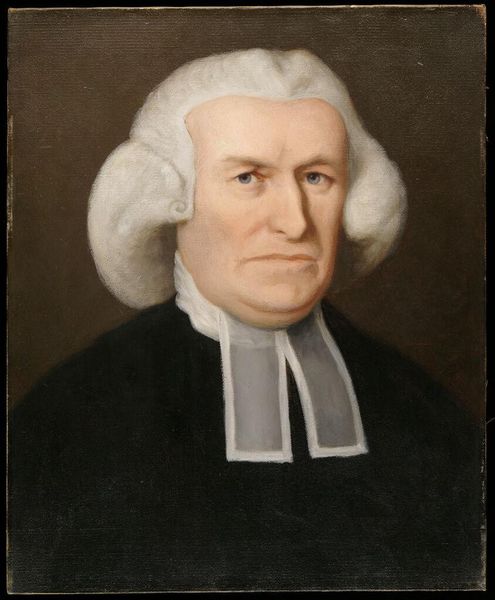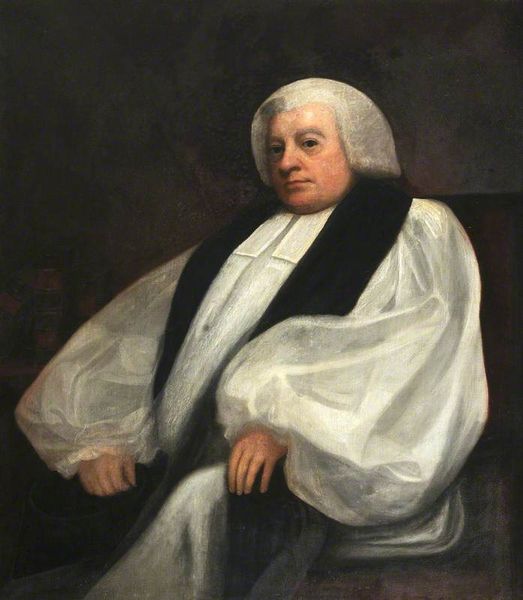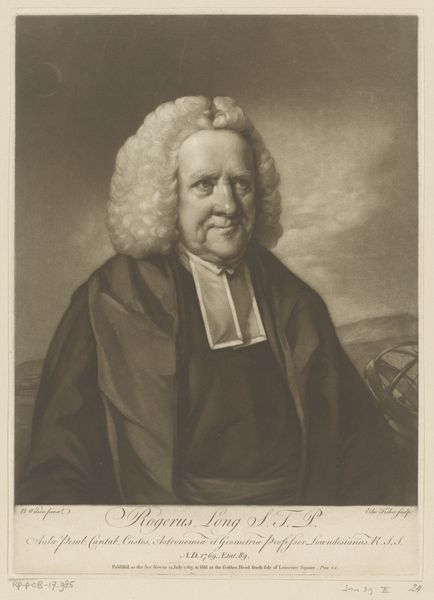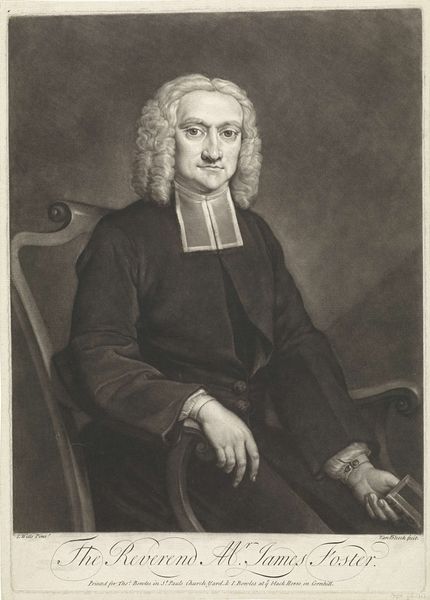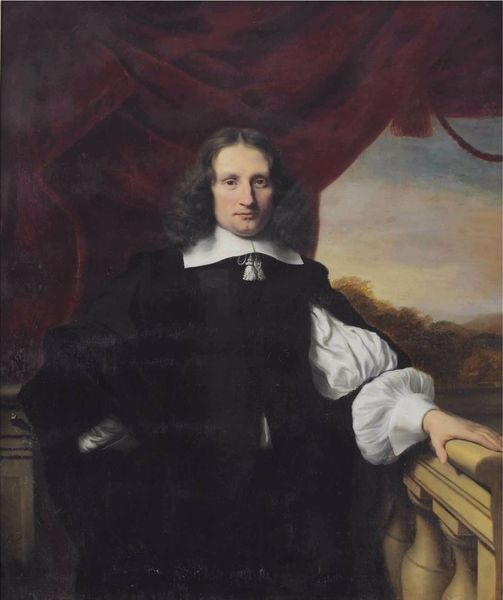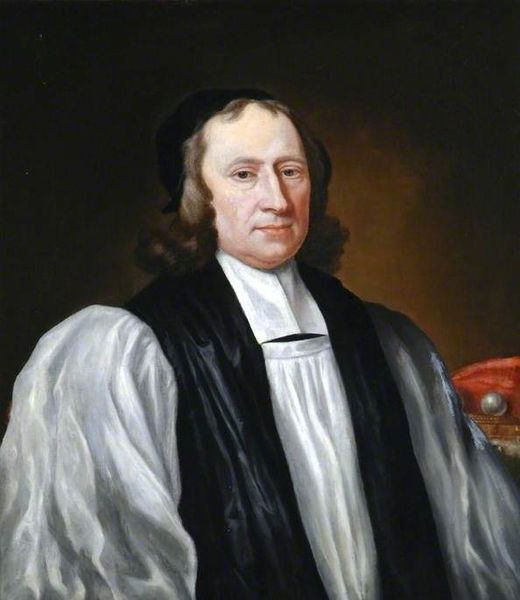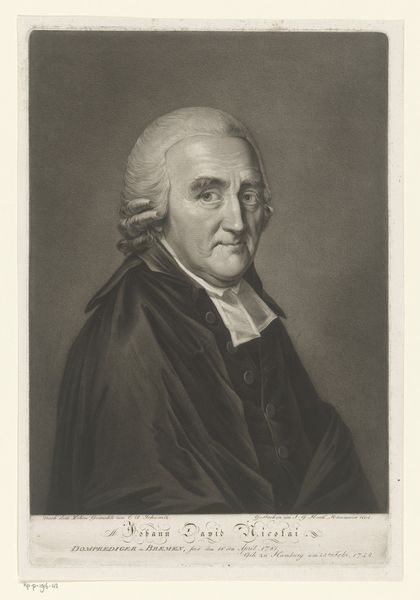
painting, oil-paint
portrait
portrait
painting
oil-paint
romanticism
history-painting
Copyright: Public domain
Curator: This portrait by George Romney depicts William Colman, who served as Master from 1778 to 1795. What's your first impression? Editor: Immediately, I sense a reserved, almost severe mood. The dark robe dominates, contrasted by the bright white wig. There's a real tension between these opposing forces. Curator: Indeed. The stark contrasts emphasize the dual nature of his role: the weight of office versus the individual beneath. Think about the symbolic weight of that robe. It signifies authority, tradition, but also perhaps a loss of individual identity within the institution. Editor: Precisely. The muted color palette and the formal pose, even the slight recession into shadow on the left side, reinforce this sense of restraint. Is he empowered or confined by this position, I wonder? What does it mean to see a portrait of a Master? Curator: The books barely visible in the background signify scholarship and learning, further grounding him in the context of academia and intellectual authority. It represents continuity but within very strict confines. Editor: But let's consider that uniform—I mean, wig. It performs a social function in that specific time period and, despite his power in his day-to-day life, is nonetheless subjugating, isn't it? A class-marker imposed upon a specific class and gender within a particular socioeconomic framework. Curator: That’s a valid point, and an uncomfortable fact that these powerful institutional roles relied so heavily on visible social signifiers and performative, ritualistic behaviors. Even something as simple as the clasped hands suggest composure but also hint at internalized pressure to perform, a necessary component of leadership. Editor: Thinking about these figures enshrined as portraits feels increasingly strange the more our understanding of systems of power shifts, doesn't it? But, ultimately, that contrast you pinpointed between institutional expectation and individual struggle still speaks across time, for sure. Curator: I find the work strangely compelling due to its ambiguous portrayal, ultimately a powerful meditation on the nature of public office. Editor: Agreed. Romney manages to pose questions that are still incredibly relevant now. It's definitely stayed with me.
Comments
No comments
Be the first to comment and join the conversation on the ultimate creative platform.
